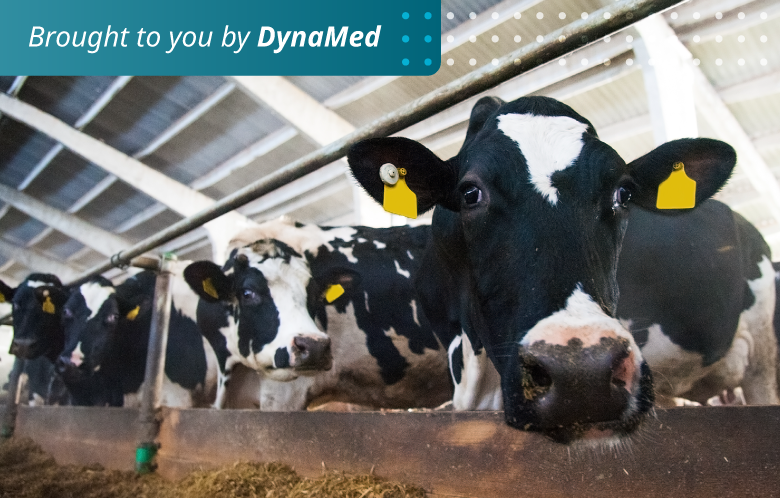As of mid-July 2024, there have been four confirmed cases of H5N1 avian influenza (commonly known as bird flu) in dairy farm workers in the United States. All cases are presumed to have acquired bird flu from infected dairy cows. In this article, the Infectious Disease team at DynaMedex answers some common questions about bird flu.
What is avian influenza (bird flu)? Is it new?
Avian influenza refers to influenza A viruses that primarily circulate in wild and domestic birds, hence the colloquial name “bird flu.” Influenza viruses can infect a variety of animals and are commonly categorized by host of origin, such as birds, pigs, horses, and even whales. Flu viruses are also subdivided based on the hemagglutinin (H) and neuraminidase (N) proteins they encode. There are many different H and N subtypes, resulting in hundreds of possible combinations. Most have been detected in birds.
The H5N1 avian influenza virus causing infections in dairy farm workers isn’t new. This strain of bird flu was first detected in humans in Asia in the 1990s and has continued to circulate among birds since then, causing occasional spillover cases in humans. Although avian flu viruses have not yet acquired the ability to be transmitted efficiently among humans, isolated cases of human-to-human transmission (within households for example) have been reported. The cases in the United States are not connected and have each been acquired by exposure to infected dairy cows.
Is bird flu different than regular seasonal influenza?
Seasonal influenza causes millions of infections each year. It is commonly caused by the influenza A virus of H1N1 or H3N2 subtypes but can also be caused by influenza B virus (though there has been less influenza B detected since the COVID pandemic). Seasonal influenza virus is of human origin (not birds, pigs, or other animals) and is transmitted easily from person-to-person, which accounts for large seasonal outbreaks each year.
Because seasonal influenza viruses circulate in these patterns, each hemisphere can use influenza virus tracking from the other hemisphere’s fall-winter flu season to predict their upcoming season and generate vaccines targeted to those strains. Since predictions occur months in advance of each flu season, the vaccines aren’t 100 percent effective, but the flu vaccine does reduce the incidence and severity of flu infections.
What does bird flu have to do with cows?
Cows are an intermediary host, meaning that they are getting infected from birds (possibly by consuming grasses contaminated with bird feces). This is the first time that H5N1 bird flu has ever been detected in cows, and currently 168 dairy farms in the United States have reported positive H5N1 testing in their herds. Unfortunately, dairy herd testing is not mandatory, so this is likely an underrepresentation of how many cows are actually infected with bird flu.
The cases of H5N1 infection in dairy farm workers are associated with close contact with infected cows and it is thought that they may have acquired the infection during the milking process.
What is the risk of bird flu to me (general public)?
The risk of bird flu to the general public remains low. The highest risk group are dairy farm workers, especially those working on farms with positive cases among their dairy cows. Personal protective equipment including goggles, gloves, boots, a proper respirator, disposable fluid-resistant coveralls, and head or hair cover is recommended for anyone in direct or close contact with any animals with suspected or confirmed H5N1 virus infection.
H5N1 influenza has been detected in unpasteurized (raw) milk collected from infected dairy cows. Unpasteurized milk and products made from raw milk can be contaminated with a variety of infectious pathogens. While the risk of contracting H5N1 bird flu from unpasteurized milk is unknown, pasteurization kills disease-causing pathogens including H5N1 influenza virus. Consumption of only pasteurized milk and products made from pasteurized milk is recommended.
The U.S. Department of Agriculture (USDA) also completed a study testing the meat supply and found no evidence of H5N1 influenza virus, suggesting that consumption of beef remains safe.
Is there a vaccine against bird flu?
A vaccine specific to H5N1 influenza is not currently available. However, as evidenced by the COVID-19 pandemic, several pharmaceutical companies are poised to rapidly make vaccines in the event of an outbreak. Additionally, there are decades of data on seasonal influenza vaccines, so it’s very likely that an H5N1 bird flu-specific vaccine could be deployed quickly if needed.



